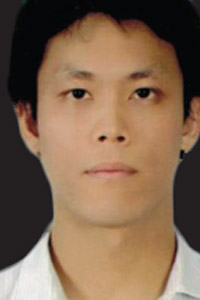2016 has entered the history books as a highly eventful year, with Brexit and Donald Trump's election victory unnerving many people and causing anxiety about the future of Western democracy. Here in the East, meanwhile, we continue to travel along a rocky road toward fully functioning democracy in many countries, with democratic institutions in some cases dominated by kleptocrats, political dynasties and military strongmen.
Malaysia is the first place that comes to mind when we consider how state-sanctioned authoritarianism is undermining democratic principles. If I had to grade Prime Minister Najib Razak for governance, the mark would not be flattering, given his tarnished reputation from the 1Malaysia Development Berhad (1MDB) scandal, and his government's chaotic and untransparent handling, in the early stages, of the tragic disappearance of Malaysia Airlines Flight 370.
Instead of seeking to prove his innocence under the legal system where 1MDB is concerned, Mr Najib has played the tyrant card to tighten his grip on power by removing a deputy prime minister and others who criticised his leadership. After he removed the attorney-general responsible for the first 1MDB corruption investigation, a new attorney-general concluded that a "donation" worth 2.6 billion ringgit to Mr Najib's personal account was not linked to graft.
While Mr Najib continues to thwart any credible investigation at home, Singapore has already tried, convicted and sentenced three bankers for 1MDB-related misbehaviour, and the US Justice Department continues its pursuit of assets worth US$3.5 billion. It's no wonder people have been protesting on the streets of Kuala Lumpur to demand Mr Najib's resignation and reform of the electoral process.
"[Mr] Najib's tooth-and-nail fight to stay in office at all costs, using the United Malays National Organisation's (UMNO) patronage machinery, is a debilitating setback for democratisation," observes Thitinan Pongsudhirak, director of the Institute of Security and International Studies at Chulalongkorn University.
With the next general election due in 2018, I expect Mr Najib will continue to demonise anti-government protesters, while consolidating his power through legislation intended to stifle the opposition, and tampering with checks and balances to ensure continued UMNO dominance.
But he will have to tread carefully as political unrest has taken a toll on the economy, causing the ringgit to nosedive and fuelling speculation about capital controls. Mr Najib may crave another term, but it could come at the expense of his fellow countrymen's well-being and jeopardise the Vision 2020 of his mentor-turned-nemesis, Mahathir Mohamad.
Looking a bit farther to the east, we are equally disheartened by developments in Cambodia, which also will go to the polls in 2018, following local elections this year.
Since becoming prime minister in 1985, Hun Sen has consolidated his iron grip through patronage and military force, while resorting to intimidation and media suppression to quash opposition. Global Witness last year produced a bombshell report detailing how the strongman and his family had amassed some $200 million via business interests, including some linked to land grabs and environmental destruction.
Casting a shadow over Cambodia's dubious democratic institutions is the legal plight of opposition leader Sam Rainsy. He has been sentenced to five years in prison over a Facebook post, making his return from self-imposed exile more unlikely.
"Prime Minister Hun Sen has harassed and harangued opposition figures in a similar fashion [to Mr Najib], intent on passing the reins of his Cambodian People's Party to one of his sons," says Dr Thitinan.
If history is any guide, we can expect to see further suppression of opposition through state-sanctioned brutality and electoral irregularities, as witnessed during the 2013 Cambodian election. With his sons placed in key government positions, together with Chinese funding support, Hun Sen is well positioned to extend his dynasty, with hopes for change and genuine democracy going down the drain.
Of course, we would be remiss in not mentioning Thailand, which offers valuable lessons about how social injustice and inequality, corruption, cronyism, and last but not least, suppression of free expression can induce deep social fragmentation, crippling future development and causing recurring civil unrest.
Or maybe democracy is not an ideal option for the powers that be in these countries, as they prefer authoritarian rule exercised alongside a sham democracy. Whatever the case may be, people in these countries will eventually decide what system of governance they prefer, hopefully without bloodshed. The answer might not be very appealing to the current ruling factions, who might find their behaviour gravely incompatible with modern-day changes.
